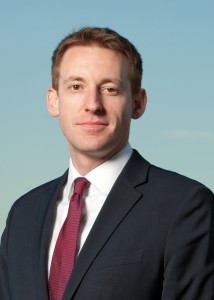JEFFERSON CITY, Mo. — One of the few issues both political parties can publicly agree on is the need for campaign finance reform in Missouri.

Repeatedly referring to the toxic combination of limitless individual donations to campaigns and unlimited gifts from lobbyists as the “real voter fraud in Missouri,” Secretary of State Jason Kander, the state’s leading election official, has taken to mentioning the need for such reforms at public events across the state.
“Frankly, candidates for office like being able to take massive campaign contributions, and a lot of politicians in Jefferson City like free dinners, free concert tickets and free baseball games,” Kander told The Missouri Times. “There is no interest group out there called ‘Big Ethics’ that will reward politicians for doing what’s right on this issue.”
While politicians on both sides seem eager to meet public expectations of clean elections, little legislative action has been taken on the issue, leaving members in both parties gloomy about the prospect of a fix.
“I’m pessimistic about any real reform,” Rep. Rory Ellinger, D-University City, and vice chair of the House Ethics Committee. “It can’t go through the legislature because both parties, like it or not, both parties are dependent on the system we have in place.”
Legislation carried this year by Rep. Kevin McManus, D-Kansas City, would make sweeping changes to Missouri’s election and campaign finance laws. House Bill 139 is almost identical to legislation sponsored in 2012 by then-Rep. Kander. The bill was referred to committee and never received a hearing or a vote.
Aimed at capping lobbyist gifts, limiting contributions between campaign committees, restricting former elected officials from immediately seeking employment as lobbyists when their terms are up and tightening restrictions in the filing related to large donations, the bill has public support from both sides of the aisle, but little traction.
The omnibus campaign finance bill, which was referred to the House General Laws Committee, ultimately was too large and broad to be successful, according to committee Vice Chair, Rep. Todd Richardson, R-Poplar Bluff.
“I think you’ll find broad support from the legislature to make some changes,” Richardson said. “But oftentimes, and I think this was the case with [HB 139], you have a bill that tries to deal with so much that it ultimately dies under it’s own weight.”

The Committee Chair, Rep. Caleb Jones, R-California, said he personally supported measures that would make the election process more transparent to avoid “even the perception” of a dishonest system, but said his committee heard many bills during session and simply didn’t have time to handle the omnibus legislation.
Rep. Sue Entlicher, R-Bolivar, who is the Chair of the Elections Committee and the recently-created Interim Elections Committee, said in her three years in the House, she cannot recall campaign finance bills coming before the committee. She said she couldn’t speak to what reforms she would support until specific language was placed in front of her, but that she didn’t believe individual donations should be capped.
Entlicher said she would take the matter up if her constiuents expressed strong feelings on the issue, but that it “didn’t come up often” with the voters in her district and thus, wasn’t a priority for her personally. Her colleague on the other side of the aisle, Ellinger, echoed the sentiment that citizens needed to make the topic an issue for their local representatives.
“I think if we want to see real reform then the voters need to make it a priority for them,” Ellinger said. “Right now there isn’t much pushback on the ballot from voters. You don’t have the average Missourians refusing to cast a vote for someone who maybe took all of this money from a few people. Until there is that pushback, I just don’t know that the legislature will respond.”
Ellinger said no real reform would be accomplished until the issue was put before a vote of the people on a ballot initiative or referendum.

Kander cannot throw his weight behind any ballot initiative or referendum as his official duties as Secretary of State deal with the approval of such measures for the ballot. However, he has been almost relentless in his message on reform, blogging for the Huffington Post and appearing on their web news series to discuss the state’s “horrendous” lack of campaign finance oversight.
The reform issue was a large margin of what Kander campaigned on before his 2012 election when he beat Republican candidate Shane Shoeller.
Schoeller — who outraised Kander significantly in the final weeks of the election with a number of sizeable individual donations — remained largely silent on finance reform during his campaign, focusing a lot of attention on the Conservative-favored voter identification issue.
Amidst his efforts, Kander recognizes that the fight for reform is controversial for the legislature.
“It is inherently difficult to get a legislative body to police itself,” Kander said.
But perception, not just policy, might be at stake, according to Ellinger.
He said that contributions and the influence they could theoretically buy isn’t always as sinister as it appears. Ellinger said many relationships between contributors or donors are borne from a genuine agreement on the issues.
“You need the money to campaign and win, so you’re going to take those funds from interests that reflect your own,” Ellinger said. “So as a Democrat, I’m strongly supportive of labor unions because I think that support translates into economic development and a strong middle class, that’s my belief about helping our state. So I feel no qualms about taking money from the carpenters or the machinists or the painters, because I believe I’m supporting the middle class and doing what is best for Missouri.”
Ellinger said the problem was not with an individual party, but with the election system as a whole and that without public outcry, the system was unlikely to change.
“Are people bribed or bought, that’s not exactly the right question,” Ellinger said. “The question is whose interests you represent. Is it the Chamber of Commerce? Big Farm? Big Industry? Conservative groups? Liberal groups? Labor unions? That’s the question, whose interests do you share and how does that translate into financial support?”
Collin Reischman was the Managing Editor for The Missouri Times, and a graduate of Webster University with a Bachelor of Arts in Journalism.



